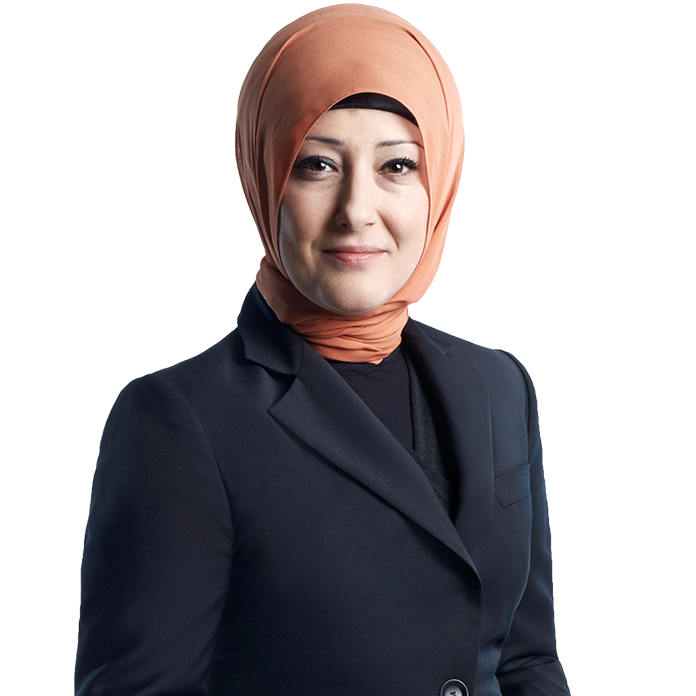With only four days left to the elections it seems that the votes of Kurds will be among the most important factors that will affect the results as much as the votes of the boycotters, youngsters and those who are still undecided. Of course, many opinion polls were carried out in the region. Speaking for myself it was not possible to get a clear answer to the question, “Who will the Kurds vote for?" Therefore, I think analyzing the voting rates of the previous elections could give us some hints for predicting who the Kurds will vote for.
In 2014, Selahattin Demirtaş was on the top of the list, gaining 47,9 percent of Kurdish votes in the region for the presidential elections, and his closest competitor President Erdogan gained 41 percent of the votes, a figure slightly lower than Demirtaş’s.
But it can be clearly stated that Demirtaş, who won a historic victory by getting nearly 10 percent of total votes in elections in Turkey on August 10, 2014, has lost his popularity after the events in which more than 50 people lost their lives during the conflict on October 6-7 and the mass murders that were caused by bombing events in big cities due to the Kurdistan Workers’ Party (PKK) terror group gaining confidence after his electoral achievement. Despite him setting off with the slogan, "Turkeyfication," he grew increasingly pro-PKK.
Anyway, if we skip the elections held in June and December 2015 and analyze the April 16, 2017 referendum; it was also the reason the Justice and Development (AK) Party's votes in the southeastern region increased by hundreds of thousands. The fact that the kindness shown to Demirtaş by the Kurdish electorate was used to promote the PKK instead of democracy.
As a matter of fact, it was commented that the April 16 referendum was won by AK Party, in a close vote, thanks to the votes of the Kurds; in the analyzes made, it was emphasized that the increase of approximately 450,000 votes from Ağrı, Van, Hakkari, Şırnak, Siirt, Bitlis, Muş, Tunceli, Bingöl, Diyarbakır, Batman, Mardin and Şanlıurfa led the "Yes" vote to be victorious in elections.
This result was associated with the perception that the problems of the Kurdish people in the region cannot be solved by Demirtaş, but by the strong will of a leader like Erdoğan who is Turkish, accepts the existence of the problems of the Kurdish people and is willing to solve them.
However, the AK Party was in solidarity with the Nationalist Movement Party (MHP) in the 2017 referendum as well. The leader of the MHP, Devlet Bahçeli, invited the MHP electorate to vote "yes." However, in the present situation, the synergy of these two parties has also led to a rapport in their discourse, and has even intertwined. So much so that the MHP gave full and unconditional support to Erdogan and has not put forth a presidential candidate.
That is to say, it is possible for Kurdish people to feel uncomfortable. On the other hand, it is still controversial whether or not an operation in Iraq’s Qandil only a few days before the election would cause a drop in votes of Kurdish people. The comments that the AK Party is aiming to gain the votes of the nationalist electorate and that this move is not positively perceived by the Kurdish voters is not an unimportant matter.
Accordingly, it is thought that Demirtaş will never obtain the popularity and courtesy like the one in 2014; after all, Demirtaş is in prison. He has drawn fury of the residents of southeastern Turkey by bringing terror to the streets of Kurdish residents and causing them to abandon their homes due to the trench incidents; and only a few dozen people attended the march to the Sur District, but as I said, after all, Demirtaş is in prison today.
The fact that he is in prison creates a picture of victimization, and this situation bestows an undeserved comfort on Demirtaş, and also an interest as a result of it. As a matter of fact, I can clearly say that I have heard the answer "I would vote for him just because he is in prison today and is a victim if I could not find any other reason" many times in my personal mini questionnaires when I asked people why they would vote for Demirtaş.
Could this and the other reasons mentioned above prevent the flow of Kurdish votes to the AK Party, or do Kurdish people think that their problems can only be solved by Erdoğan who brought the Kemalist despot government to its knees, which used to oppress both Kurdish people and also the religious as well as minorities for years. The answer to all these questions will be given on June 24.
It is on us to discuss all positive and negative aspects in detail. After all, the results will be displayed with the ballot boxes to be opened on June 24. May it bring good tidings.




















